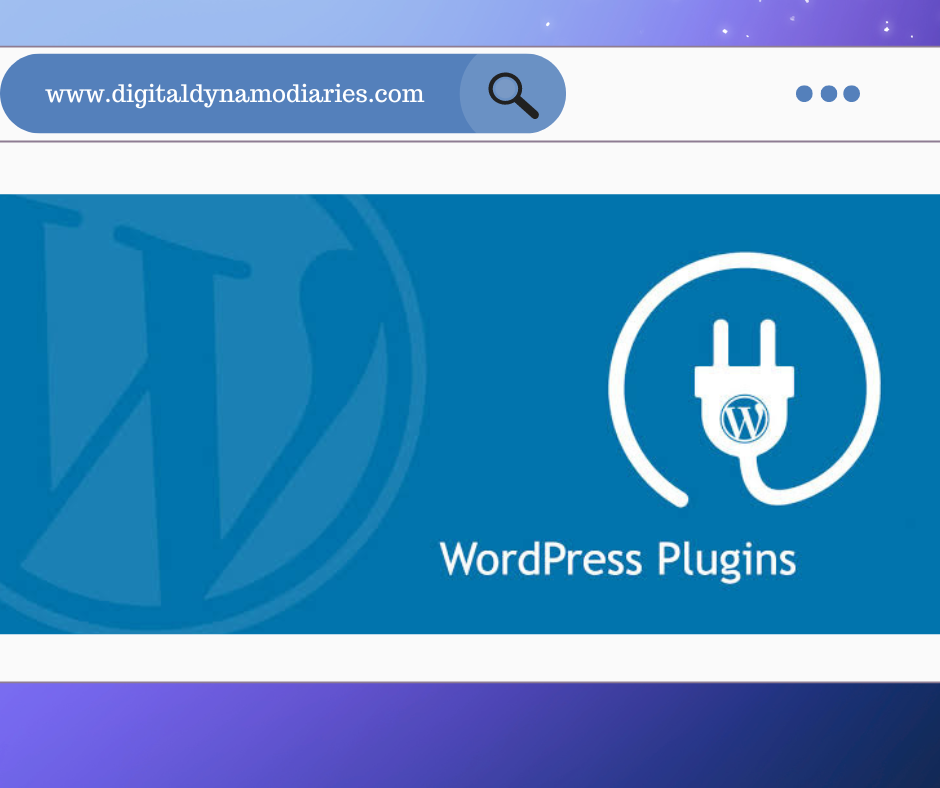WordPress Plugins
WordPress users rely on plugins to enhance their websites without needing to write code. Plugins empower users to augment WordPress websites with additional features effortlessly. They contribute to making WordPress the user-friendly, adaptable, and feature-packed content management system it is today. Understanding plugins is fundamental for all WordPress users. In this guide, you’ll discover what WordPress plugins entail, how to utilize them effectively, and the various types available.
What are WordPress Plugins?
WordPress plugins are add-on software components that enhance the functionality of a WordPress website. They can be installed to extend features like SEO optimization, security, e-commerce, contact forms, social media integration, and much more. Plugins are created by developers and are available through the WordPress plugin directory or third-party sources.
Think of WordPress software as a smartphone with built-in apps, but you can customize it by adding extra apps to fit your daily needs. You can download, install, and uninstall these apps anytime, as they function similarly to plugins.
While many free WordPress plugins are available, premium or paid options are also accessible. Free plugins provide basic functionality, whereas paid options offer additional value such as advanced features and dedicated support from developers.
Types of WordPress Plugins
Let’s explore the different types of WordPress plugins, showcase some top plugins, and analyze how each can enhance your website.
1. SEO Plugins
Refining a website and its content to rank higher on search results is the essence of Search Engine Optimization (SEO). SEO is crucial for boosting organic traffic to your site and driving sales, especially if you own an online business.
Mastering SEO can be a time-consuming process that takes years. Fortunately, an SEO plugin can assist you in implementing best practices. For instance, a blog content-focused SEO plugin can analyze your posts and provide suggestions directly from your post editor.
2. Google Analytics Plugins
Google Analytics stands out as an exceptional tool for monitoring website performance, providing valuable insights to address issues and enhance overall site performance.
Integrating Google Analytics functionality into WordPress can be accomplished through various methods, but installing a Google Analytics plugin offers the simplest solution.
3. Image Optimization Plugins
Optimizing images correctly can significantly enhance the attractiveness of your content. Conversely, poor image optimization can result in slow load times, increased storage usage, and negatively impact SEO.
WordPress image optimization plugins are designed to compress the file size of your images without compromising their quality, addressing these concerns effectively.
4. Website Optimization
Pingdom reports that 34% of visitors abandon websites that take longer than three seconds to load, highlighting the importance of maintaining a well-optimized website.
Website optimization plugins are designed to streamline your site’s code and database, significantly enhancing its performance.
5. Security Plugins
Ensuring your website is protected at the highest level is just as critical as having secure WordPress hosting. Websites without proper security measures are susceptible to virus attacks, data breaches, and potential financial losses.
WordPress security plugins are specifically engineered to prevent these unwanted cyber attacks. They often come equipped with features such as firewalls, active monitoring, and the ability to blacklist harmful IP addresses.
6. Cache Plugins
Cache plugins create inactive versions of web pages visible to visitors. This method significantly boosts website speed by minimizing data transfer between the browser, WordPress database, and server. While numerous website optimization plugins offer caching features, some are exclusively designed for caching purposes.
7. Pop-up Plugins
Pop-ups are windows or forms that appear on websites. Pop-up plugins simplify the process of adding pop-ups to your web pages without requiring any coding knowledge.
They serve as an effective way to engage with your visitors and cater to their interests. Additionally, they can aid in growing a mailing list, which is crucial for cultivating a loyal following.
8. Backup Plugins
Backup plugins automate the backup process for your WordPress website, guaranteeing that you have copies of your site’s files and database readily available in the event of data loss or website complications.
9. Social Media Plugins
Social media plugins seamlessly integrate your WordPress website with various social media platforms, enabling you to showcase social media feeds, share buttons, and other related features directly on your site.
10. Content Management Plugins
Content management plugins provide a variety of features to enhance the management of your website’s content:
- Custom post types allow for the creation of diverse content types beyond standard posts and pages, such as portfolios, testimonials, or products.
- Content restriction features grant you control over who can access specific content on your site, based on factors like user roles, membership status, or other criteria.
- Editorial workflows streamline the content creation process by enabling multiple users to collaborate, review, and approve content before publication.
These tools empower you to organize and deliver your content effectively, aligning with your website’s objectives and audience preferences.
11. E-commerce Plugins
E-commerce plugins empower you to establish online stores, oversee product listings, facilitate payment processing, and manage other e-commerce operations seamlessly within WordPress.
Conclusion
The WordPress plugin ecosystem is diverse, offering solutions to fulfill virtually any need or requirement for your website. Whether you seek niche functionality like event management, booking systems, language translation, or even gamification features, there’s likely a plugin tailored to your specific needs. Exploring this wide range of specialized plugins can empower you to enhance your website’s capabilities and customize it to achieve your unique goals and cater to your audience effectively.
WordPress’s flexibility lies in its capability to accommodate a wide array of paid and free plugins, making it a powerful platform for users. Hence, it’s essential for every WordPress beginner to grasp the concept of plugins, their functionality, and how to effectively manage them.
This article has provided a comprehensive overview of WordPress plugins, covering all the basics. The next step is to explore and discover the best plugins tailored to achieve your WordPress site’s objectives.


